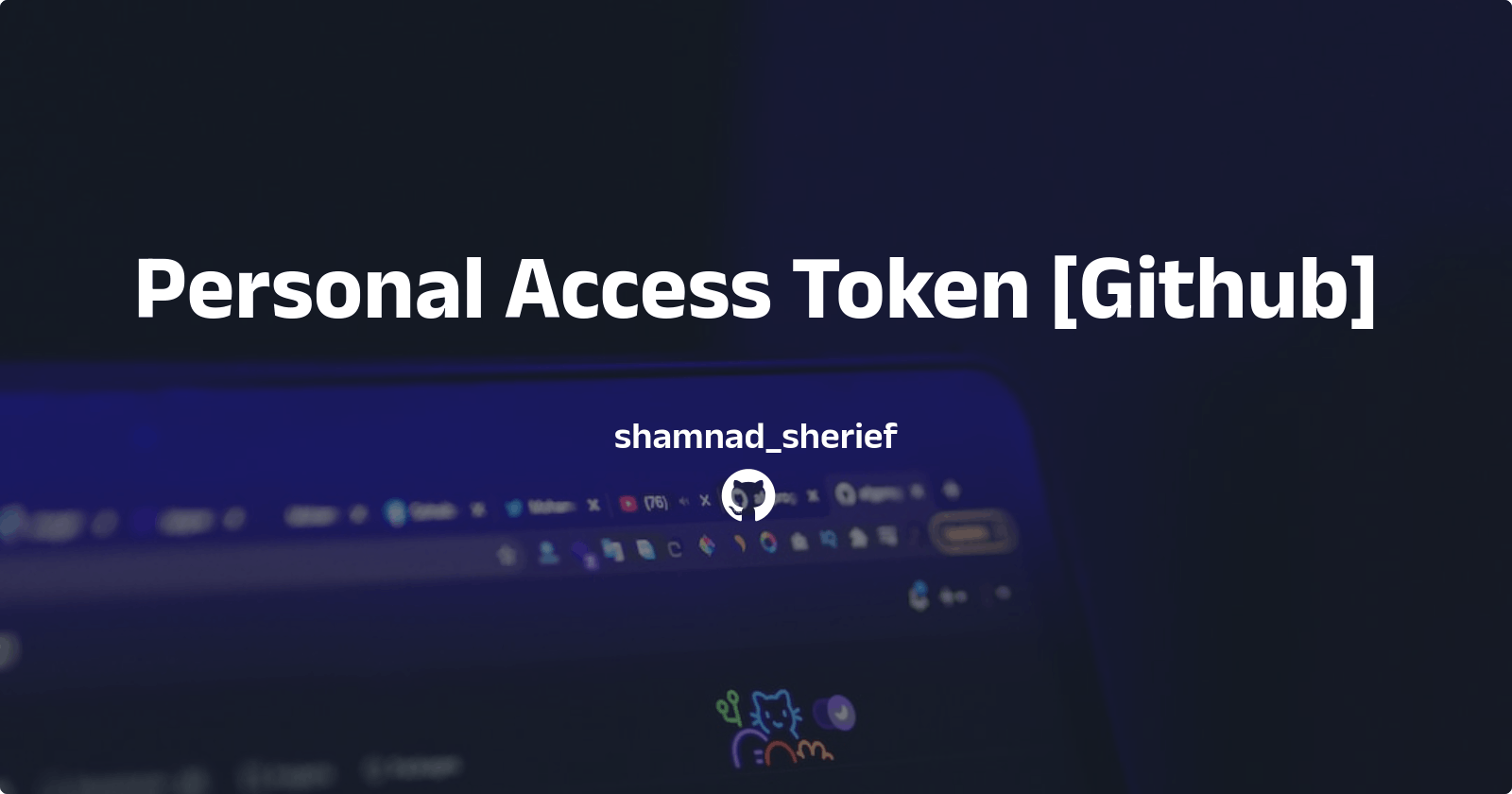GitHub is one of the most popular platforms for hosting and managing code repositories. To access the code in a repository, users must authenticate to the GitHub server. Password authentication was recently removed, and users are encouraged to use key-based authentication or personal access tokens (PATs) instead. In this blog, we'll look at how to create a personal access token in GitHub.
PermalinkWhy Use a Personal Access Token (PAT)?
Personal access tokens (PATs) are an alternative method of authentication that can be used to access GitHub repositories. Unlike passwords, PATs can be revoked at any time and are considered to be a more secure form of authentication. When you use a PAT, you are granted access to the resources that you need, without exposing your password to others.
PermalinkSteps to Create a Personal Access Token
Here's how you can create a personal access token in GitHub:
Log in to your GitHub account and click on your profile picture in the top right corner.
Select "Settings" from the drop-down menu.
In the left-hand menu, click on "Developer settings."
In the Developer Settings section, select "Personal access tokens."
Click on the "Generate new token" button.
Enter a descriptive name for your PAT and select the scopes that you want to grant access to.
Click the "Generate token" button.
Your personal access token will be generated and displayed in a pop-up window. It is important to keep this token safe, as it can be used to access your GitHub account.
If you need to revoke a PAT, you can do so by going back to the Personal Access Tokens page and clicking on the "Revoke" button next to the token that you want to revoke.
Personal access tokens (PATs) are a secure and convenient way to access GitHub repositories. By following the steps outlined in this blog, you can easily create a PAT in GitHub and start using it to access your code repositories. Remember to keep your PAT safe, as it can be used to access your GitHub account. By using a PAT, you can ensure the security of your GitHub account and your code repositories.
